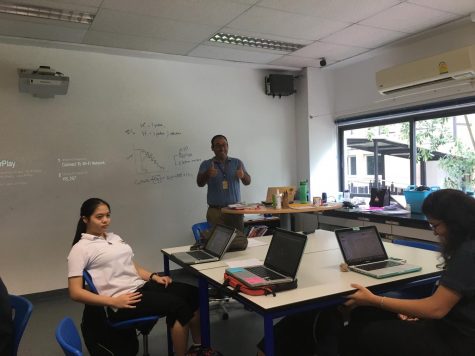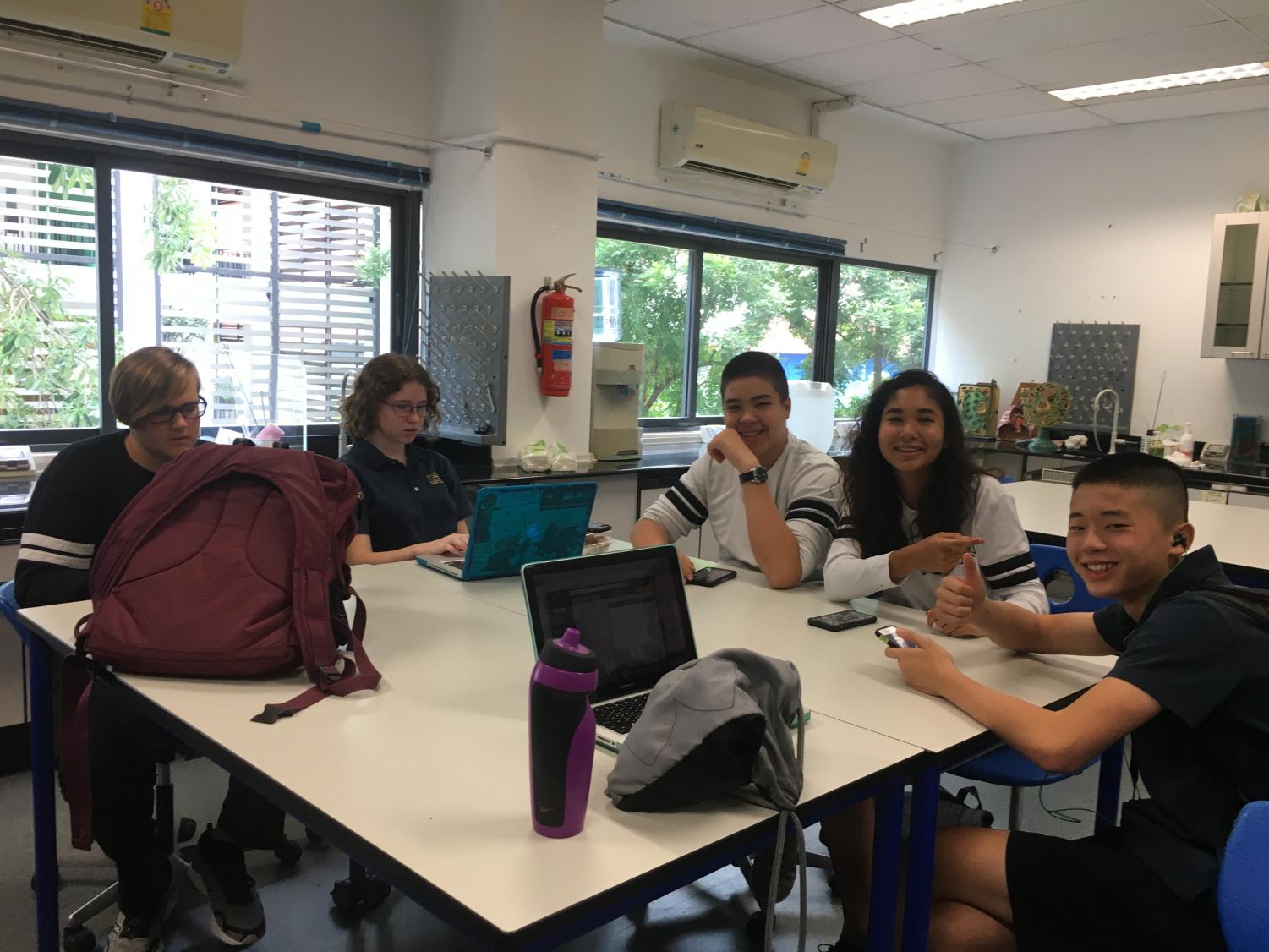Advisory Tackling Adversities
September 18, 2018
As the future becomes the present, and we find ourselves graduating and leaving behind our loved ones and the comfort of our familiar territory. We will find ourselves searching in our little tool box for the life skills that we so desperately need to start our new, independent life. This will be the moment when all of us think about advisory.
Introduced three years ago, the Advisory programs fundamentally strives to ensure that students are comprehensively learning critical life skills which are not taught through the regular school curriculum. This further ensures that students reach a point in their lives where they are comfortable and confident in making the right life choices.
Advisory also creates an enriching community which students can rely on for the entire four years of their high school journey, amplifying the positive atmosphere at ISB!
Advisory has faced many adversities, with an abundance of students argue that advisory is not as effective as it should be, due to the fact that many of the topics discussed seem irrelevant for adolescents aged 14-18 years old. Milla Harter (10) argues that there is “little communication between advisors. Although some advisories share their personal issues and help each other cope with stress, others sit through mindless crosswords and activities. I would prefer to learn practical skills such as how to pay taxes.”
Nora Wiktorowicz (10) mentions that “student leadership in the advisory program would be extremely effective if we could choose what we wanted to talk about, rather than having to sit through a scheduled session learning about the brain.”
As the years progress, student driven activities in advisory will be encouraged. Ninth grade level coordinator Eleanor Brock, mentions that “everyone at ISB is maturing. As a student body, students are becoming more proactive and taking more leadership roles in the school, we hope to see students taking more leadership roles in advisory, and really driving the program.”
 Although advisory has faced widespread student criticism, the program is constantly being refined and improved. Student feedback is critical to ensure that the Advisory program is continually developing for the better. Grade level coordinator of tenth grade, Megan Shaffer, states that “one thing I’ve started doing this year is working more closely with the student council, and giving them more of a chance to exercise their leadership.”
Although advisory has faced widespread student criticism, the program is constantly being refined and improved. Student feedback is critical to ensure that the Advisory program is continually developing for the better. Grade level coordinator of tenth grade, Megan Shaffer, states that “one thing I’ve started doing this year is working more closely with the student council, and giving them more of a chance to exercise their leadership.”
Although Advisory is forced onto students, in the long run it will prove to be both socially and emotionally beneficial. Ms. Shaffer continues emphasizing “I never had an advisory program, I had to learn those social and emotional skills all on my own and messed it up a lot. If we can help alleviate at least a little bit of that by guiding you through advisory, then we’ve done our job.”
Ms. Brock shares that “as the years have passed, Advisory has become embedded into the Middle School as well as become a part of the ISB culture.” In fact, it has become evident that more people are invested in making the program work, understanding that long term relationship building will only further improve the ISB community. Affirming this, Ms. Brock mentions that “even though I work with grade nine, seeing some of the advisories that are still together now in 11th grade, knowing that they’re working a little bit better is kind of exciting!”
Eleventh grade level coordinator Ginny Voigt, reveals that “we’ve learned to listen to students more and get a handle on what their needs are. We are trying to make advisory a little less like a lesson, and focusing on more practical skills.” Rather than learning about issues such as the functions of the stress response system (which many High School students show no interest in), more focus could be put on methods to deal with stress.
Personally, I get the most out of advisory when I get to collaborate with my friends from other advisories! However, many times, topics taught in advisory are slightly irrelevant and uninteresting for students of our age, such as in depth research about the brain. If we find more engaging ways and things to learn about in advisory and provide our feedback, advisory can most definitely change for the better!
While everyone has a fresh perspective and opinion on advisory, one thing all of the grade level coordinators agree on is that “students don’t see the academic purpose, but we’re building skills that they will need for the future, one day they will appreciate it!”
